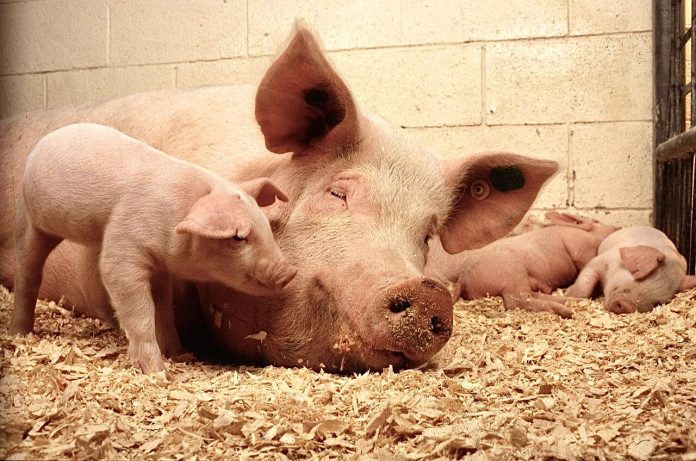
U.S. District Court Rules That Kansas’ Ag-Gag Law Which Bans Undercover Investigations At Slaughterhouses Is Unconstitutional
By Lauren Lewis
You can help all animals and our planet by choosing compassion on your plate and in your glass. #GoVeg
RELATED ARTICLES
U.S. Congress Urged To Give $300 Million To Help Protect Endangered Marine Species
Photo Credit: Center for Biological Diversity
More than 80 conservation organizations recently urged Congress to increase the budget for the National Marine Fisheries Service in...
Captive Primate Safety Act Would End The Cruel & Dangerous Primate Pet Trade In The U.S.
The Captive Primate Safety Act (CPSA) was reintroduced yesterday, which would end the cruel and dangerous pet primate trade in the United States. Nonhuman primates...
Lion Cub Illegally Kept As A Pet Is Rescued From Lebanon & Relocated To South African Sanctuary
Photos by HSI
A four-month-old lion cub named Pi, who was rescued from an illegal pet owner in Lebanon, has been safely relocated to his...
Popular stories
News
The UN Warns That More Pandemics Will Occur Unless Steps Are Taken To Protect Wildlife, Promote Sustainable Agriculture & Preserve The Environment
A new report warns that further outbreaks like COVID-19 are likely to emerge unless governments take active measures to prevent other zoonotic diseases from crossing over...
News
California Bill To Require Pet Microchipping Aims To Reduce Number Of Animals Euthanized In Shelters Throughout The State
California State Senator Ling Ling Chang (R-Diamond Bar) introduced SB 573 yesterday, a bill to require local animal control agencies and public and private shelters to microchip...
News
Friends Of Animals Calls On The State Of New York To Ban Trophy Imports Of Endangered Species
New York State is the largest port of entry for the importation of wildlife “trophies” in the United States. It is about time that they take steps...


